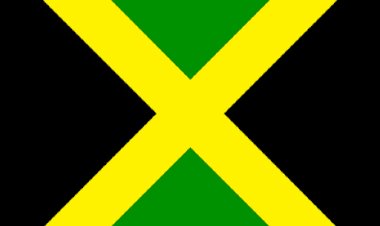Black-Owned Farms Fill Gaps Left by SNAP Funding Delays
Cherie Jzar, a North Carolina farmer, has become a lifeline for area residents as the Trump administration has delayed funding the Supplemental Nutrition Assistance Program. Many of her customers are seniors — who often live on fixed incomes and rely on SNAP. With the rising costs of food, she said, it has been difficult for […] The post Black-Owned Farms Fill Gaps Left by SNAP Funding Delays appeared first on Capital B News.


Cherie Jzar, a North Carolina farmer, has become a lifeline for area residents as the Trump administration has delayed funding the Supplemental Nutrition Assistance Program.
Many of her customers are seniors — who often live on fixed incomes and rely on SNAP. With the rising costs of food, she said, it has been difficult for the elders in the community to purchase produce or meats.
For months, she and her family have given free bags of produce to elderly residents in the Historic West End of Charlotte, a majority-Black community. They run Deep Roots CPS Farm, and have gifted people collard greens, kale, and radishes. Other times, they gave away fruits like strawberries and blueberries.
“Especially in times of crisis, you definitely need institutions like farms, led by people who care about the people that they’re providing produce to,” Jzar said.
Now, as the longest government shutdown continues, it is uncertain when SNAP payments could arrive. Jzar said she knew she and her family had to continue their work.
In partnership with the Charlotte Mecklenburg Food Policy Council, Jzar joined other growers to provide financial assistance to SNAP participants. Residents can double their spending at their local farmers market or farm stands through a national initiative known as the Double Up Bucks food program. The policy council gives each customer wooden tokens, and if they spend $40, they will receive an additional $40 to spend.
While two federal court judges ruled the administration must fully fund the program by Nov. 7 using contingency funds from the U.S. Department of Agriculture, the government has not done so as of Friday afternoon. The administration instead requested a delay, leaving SNAP participants to fend for themselves.
However, grocers and farmers like Jzar are filling in the gap.
“We have always been rooted in the community, and we will never stop doing that, no matter if SNAP is paused or continues to go on,” Jzar told Capital B.

How did we get here?
The USDA, which oversees SNAP, froze the funding on Nov. 1, as a repercussion of the government shutdown, which started on Oct. 1. In response, more than two dozen states filed lawsuits against the Trump administration to restore funding.
In favor of the states, two federal judges ordered the federal government to fund the benefits using contingency funds. Both judges stated that the decision to freeze the payments was likely unlawful.
The administration announced that they will use $4.65 billion to cover 65% of benefits. U.S. Secretary of Agriculture Brooke Rollins told Scripps News there’s no additional money beyond that. On Nov. 6, U.S. District Judge John J. McConnell Jr. of Rhode Island ordered the administration to deliver full funding to states by Friday.
“People have gone without for too long, not making payments to them for even another day is simply unacceptable,” McConnell Jr. said.
In a court filing, the Trump administration asked a federal appeals court on Friday for an emergency pause on the order to fully fund SNAP.
Lawmakers, food advocates demand full SNAP benefits
Cutting off or reducing SNAP benefits doesn’t just harm families, it could also impact 27,000 retailers and grocery stores — particularly ones in large rural counties with high shares of participants, according to an analysis by the Center for American Progress.
Congressional and nonprofit leaders say partially funding SNAP is not enough.
“The decision to provide only partial benefits forces state agencies to scramble under unclear guidance, which will further delay benefits. It also means that families are missing out on much-needed nutrition support,” Crystal FitzSimons, president of the Food Research and Action Center, said in a statement. “Enough time has already been lost — the funds must be released immediately to avert further harm, chaos and confusion.”
The Congressional Black Caucus also called on the Trump administration to release the full funding for SNAP benefits.
“Partial funding simply isn’t sufficient to keep food on the tables of American families who have already missed their benefits due to the Administration’s reckless and illegal inaction,” the lawmakers said in the statement. “Each day that goes by is another day a child, senior, or person with a disability in our country goes hungry because the Trump Administration would rather play politics than meet the needs of the American people.”
Food businesses, philanthropists help their neighbors

In Oakland, Mississippi, a Black-owned, nonprofit grocer is providing 30 food boxes a month to households with children and older people. For $30, residents can purchase an additional box.
One health center in New Haven, Connecticut, is offering food vouchers to current patients, which can be redeemed at local grocery stores.
Other stores and restaurants across the country have offered discounts. Billionaire and media mogul Tyler Perry has donated $1.4 million to food banks and organizations in Atlanta and Los Angeles.
Meanwhile, the USDA issued a notice that authorized retailers cannot treat SNAP customers differently, and must offer eligible foods at the same prices. The notice also warned that discounts or services only to SNAP customers is a violation.
The shortage of funds will create an increased demand for food banks and organizations such as Power In Changing, a diaper bank in South Carolina. Ayanna White, founder of the nonprofit, said she expects to see a surge in clients. While they are prepared to meet the need, they are stretched thin, she said.
“We are recognizing that food insecurity plays deeply into material need, and if you don’t have the funding or any type of food, you are spending any funds you do have on food because you have to eat,” White said. “Then the babies don’t have [diapers] or the things they need.”
Back in North Carolina, Jzar is preparing to continue the work to feed her community, particularly those who are most in need.
“We have always sort of led with this understanding that our people face barriers to a lot of things. One of them is food and food access,” Jzar said. “The ones that are most vulnerable are our seniors who are on fixed incomes. They don’t have the means to adjust their budgets because of high food prices at times. And so what do we just do? Turn our backs to them?”
She added: “No, we think of ways that we can service them … and we’re going to continue to do it in the future.”
The post Black-Owned Farms Fill Gaps Left by SNAP Funding Delays appeared first on Capital B News.























